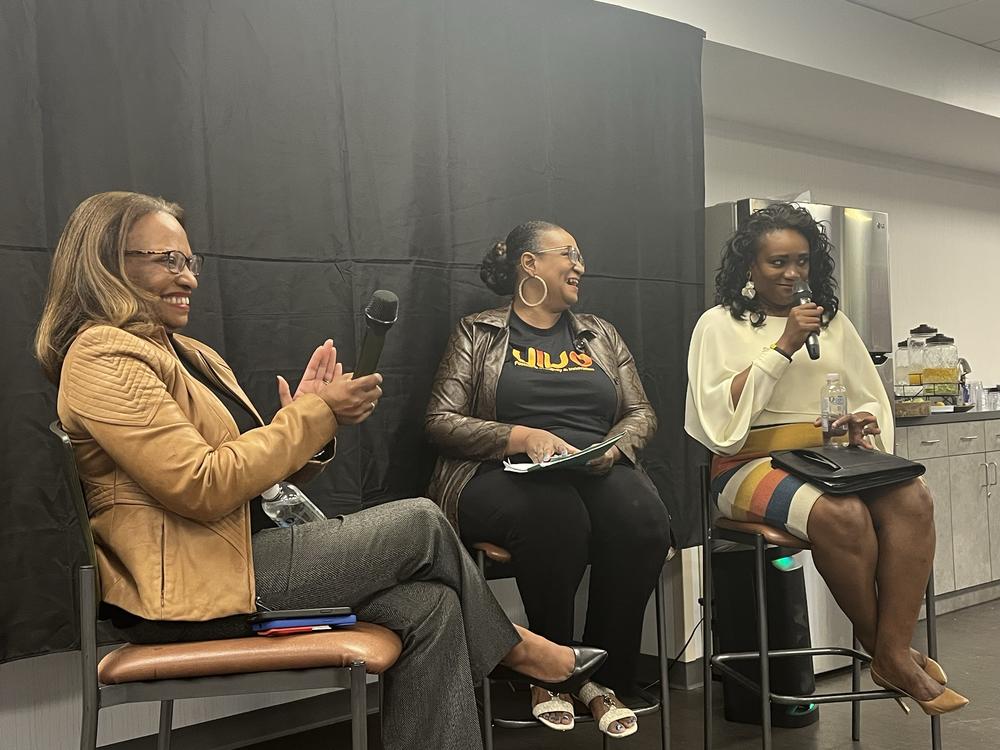
Caption
HUD Acting Secretary Adrian Todman (left) joins VIvo 360 CEO Sophie Gibson (center) and former state Rep. Donna McLeod (right) for a conversation on housing.
Credit: Amanda Andrews / GPB News
|Updated: October 25, 2024 12:59 PM
LISTEN: The Acting Secretary of the U.S. Department of Housing and Urban Development visited Norcross recently for a conversation with the Caribbean-American community. GPB’s Amanda Andrews reports.

HUD Acting Secretary Adrian Todman (left) joins VIvo 360 CEO Sophie Gibson (center) and former state Rep. Donna McLeod (right) for a conversation on housing.
Residents and leaders from Gwinnett County’s Caribbean community joined U.S. Department of Housing and Urban Development Acting Secretary Adrian Todman for a conversation last week.
The discussion was held in Norcross in collaboration with the marketing agency Vivo 360 led by its CEO Sophie Gibson and former state Rep. Donna McLeod. Todman spoke with business leaders from various industries about what federal housing efforts have taken place since 2021 and allowed them to share their concerns.
Todman said she’s aware many people haven’t recovered financially since the pandemic.
“A lot of people perhaps lost a loved one who was part of their household, part of their economic engine,” she said. “They had difficulties with the relaxing of the eviction moratorium, with folks not being able to get some of the same unemployment benefits that they receive, with the child tax credit bump up going away.”
Todman said the U.S. Treasury Department pushed $50 billion in 2021 towards helping people pay rent, but now that money is gone.
“We are now here trying to be smart and creative about the things we can do to build more rental housing, to build more startup homes,” Todman said. “That seems to be, for many people who want to be first-time homeowners, the crux of the matter.”
The discussion also focused on how intersects with health, education and economic opportunities. In 2019, advocates pushed Gwinnett County leaders to count everyone who was unhoused. McLeod said it’s important to acknowledge where housing efforts have fallen short.
“Getting real numbers is important,” she said. “Because you can fluff things, and you can disregard human beings just because you don't want to face it. But facing it is part of the solution.”
HUD priorities include partnering with other federal agencies to fund solutions for rising rents and home prices.
An earlier version of this story incorrectly read:
Todman said in the early 2000s the U.S. Treasury Department pushed $50 billion towards helping people pay rent, but now that money is gone.